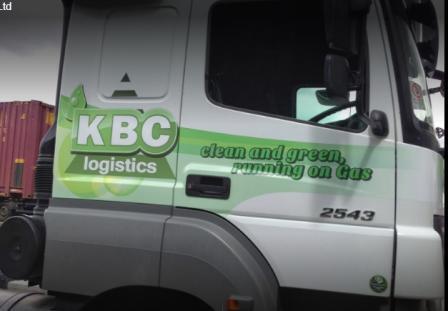
An operator that received a £550 fine after his driver breached the London Lorry Control Scheme (LLCS) said the preferred route would have added 30 miles to his journey and increased carbon emissions.
Purfleet-based KBC Logistics said the regulations made no sense and the LLCS needed to be “abolished, or seriously reviewed”.
Transport director Dave Ashford said its driver travelled a 70-mile round trip to Croydon from London Gateway port via the M25 and A21, but was penalised by London Councils for driving on restricted roads.
Ashford said the compliant route would have been 100 miles, wasting fuel and creating more emissions and that the LLCS did not take into account quieter and more efficient modern HGVs.
He said: “Why is an authority hell bent on reducing emissions sending vehicles on a much longer journey for no gain?
“The driver followed his satnav, which took him the most sensible route with regard to time and distance and vehicle dimensions.”
Ashford said the penalty was reduced by 50% because it was paid within 14 days and he saw no point in challenging the amount.
However, Logistics UK said members believed the scheme now needed a radical overhaul since its introduction in 1986.
“We have seen Sunday trading introduced, the M25 completed - which stopped the supposed problem of lorries rat-running through the capital – and HGVs have become much quieter,” said Natalie Chapman, Logistics UK head of urban policy.
“London Councils started a review of the scheme about three years ago, but it is yet to progress any major changes to the operating hours, routes or exemption of quieter vehicles within the scheme.
“In its current format, the LLCS forces HGVs on lengthy detours and pushes them into the most congested time of the day, causing significant additional mileage and emissions.”
Chapman added: “The LLCS was suspended for a couple of months in the early stages of the pandemic to assist operators with restocking the capital’s shelves.
“Members reported significant improvements in productivity as a result and we are not aware that there were any complaints from London residents as a result of the suspension.”
A London Councils spokeswoman said the route taken by KBC Logistics’ driver involved travelling for 19 miles on restricted roads, which it could not sanction.
She said it took the problem of air pollution seriously, but that historic High Court cases had indicated that no one environmental pollutant should take precedence over another.
“Noise pollution is increasingly being recognised as having a negative impact on public health,” she explained. “It is unfortunate but sometimes inevitable that an operator may have to divert away from the shortest route to comply with the terms and conditions of the scheme.”
The London Councils spokeswoman also said it was willing to discuss solutions to routing issues where possible: “We cannot however permit considerable use of restricted roads in breach of the terms and conditions of the scheme when viable alternatives are available.”
She added: “London Councils is in the process of commissioning a review and audit of signs that would provide detailed information of where any improvements need to be made.
“We are also working on an electronic routing tool that would provide operators with compliant routes.”











